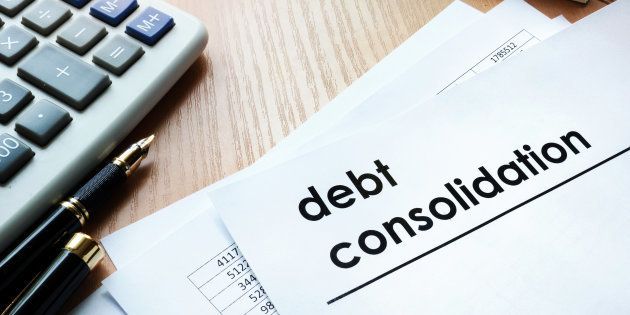 There’s no quick, easy, guaranteed way to eliminate debt. Like anything worth doing in life, it takes some preparation — and usually some lifestyle changes — to succeed.
There’s no quick, easy, guaranteed way to eliminate debt. Like anything worth doing in life, it takes some preparation — and usually some lifestyle changes — to succeed.
Getting rid of debt means getting a game plan. Many borrowers have found consolidating their debts makes the repayment process simpler and less expensive. On the other hand, some people have tried to consolidate and ended up even deeper in debt. Getting the desired results from any debt relief strategy, including consolidation, means knowing a company that provides a reliable debt consolidation services, as well as the potential pitfalls ahead of time so you can avoid them.
Here are four dangers to avoid when pursuing debt consolidation.
Danger #1: Paying More in Interest Charges
One popular method of consolidating debt involves taking out a loan to pay off other debts, like credit cards or medical bills, in one fell swoop. This allows the borrower to focus on making a single monthly payment until the loan is paid in full. Plus, personal loans often — but not always — carry lower interest rates than credit cards do on average, so it can reduce the total amount of interest paid on debts.
But debt consolidation can end up costing you more, even with a lower rate, depending on the length of the repayment term. Here’s an example from MarketWatch: Paying off $20,000 in credit card debt at 15 percent, at a rate of $600 per month, would have you paying $5,800 in interest over about three and a half years. Paying back a 10-percent consolidation loan would cut the amount of your monthly payments in half, but it’d cost nearly $8,000 in interest and take seven years to get clear.
The amount you save on interest also depends upon your credit rating because lenders set their loan rates based in part on a borrower’s risk level. A good rule of thumb to remember is debt consolidation loan for bad credit costs more than consolidation for good credit
The takeaway here? Crunch the numbers — taking into account the interest rate for which you qualify and the length of the loan term — before consolidating. It’s the only way to make sure you’re saving money.
Danger #2: Accumulating New Debt
As Bankrate notes, another possible hazard of consolidation is the fact that it can clear “space” for people to accumulate more debt. Seeing your credit card balance go down can renew the temptation to spend — but this time you’ve got a loan to pay back, too.
This underscores the importance of changing your spending habits alongside your consolidation efforts. The last thing you want to end up doing is digging yourself an even deeper hole.
Danger #3: Falling Victim to a Debt Consolidation Scam
Believe it or not, there are people out there looking to take advantage of those in debt. It’s crucially important to research your lender — and to avoid offers that seem too good to be true. Unsolicited offers are usually bad news, as are offers from companies guaranteeing approval. Look for transparency and legitimacy from the starting gate.
Danger #4: Risking Your Assets as Collateral
Borrowers with bad credit may be tempted to secure their loans against collateral — like their home or vehicle — to get approved or reduce interest. The risk here is missing a payment on the loan at any point over its lifetime may result in you losing that collateral, making this an ultimately risky move.
Avoiding the dangers of debt consolidation will maximize your chances of success.

Founder Dinis Guarda
IntelligentHQ Your New Business Network.
IntelligentHQ is a Business network and an expert source for finance, capital markets and intelligence for thousands of global business professionals, startups, and companies.
We exist at the point of intersection between technology, social media, finance and innovation.
IntelligentHQ leverages innovation and scale of social digital technology, analytics, news, and distribution to create an unparalleled, full digital medium and social business networks spectrum.
IntelligentHQ is working hard, to become a trusted, and indispensable source of business news and analytics, within financial services and its associated supply chains and ecosystems









